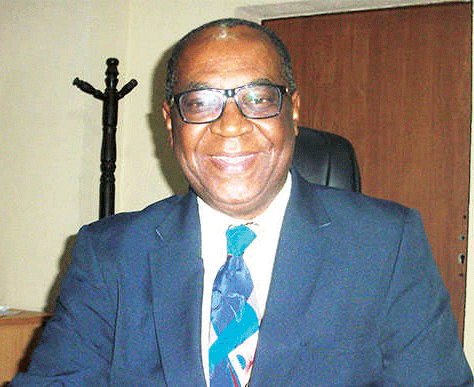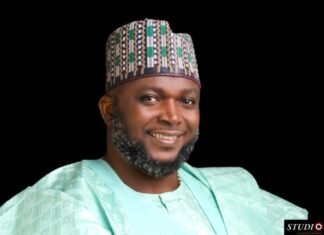Prof. Taiwo Osipitan, a Senior Advocate of Nigeria (SAN), versed in Commercial and Public Law, speaks with Senior Correspondent, ONYEWUCHI OJINNAKA, on proliferation of law faculties, corrupt judicial officers, demand for capital punishment, among other issues.
What is your reaction to the recent mass failure in the Nigerian Law School?
It is becoming fashionable for every federal or state university and indeed private universities to want to have faculties of law. They see their universities as incomplete without faculties of law. But, what you have is that whereas there is clamour for establishment of faculties of law, majority of these faculties do not have seasoned law lecturers. The rate at which you have faculties of law is not being matched by the rate at which you produce law lecturers. Many of the senior law lecturers have either died or retired. But, we have not been able to replace them in a way that we will have enough lecturers to go round.
Consequently, you have some lecturers teaching in three or four universities at the same time. There are only 24 hours in a day, half of which you must rest. So, they are left with about 12 working hours. Sometimes, these lecturers have to travel far and near from one university to another. By the time they get to their destination, they are already spent. The next day they are rushing back to another university and they are tired. So, it is an issue of manpower; they do not have enough lecturers to grill the students. So, what some universities do is to pass them out of the university and send them to the Law School. It is when they get to the Law School, where things are done properly, that the effect of lack of proper foundation is felt.
What is the solution?
I will suggest that the Council of Legal Education and the National Universities Commission (NUC) must be bold and courageous to close down as many law faculties as do not have sufficient manpower to cope with what they have. I think, for now, they should also put on hold the establishment of law faculties in Nigerian universities. I believe we have had enough for now, pending the time things will improve. There is need to do some surgical operations in terms of closing down law faculties that are not viable and also put on hold approval for new faculties no matter who is involved.
Recently, the Chief Justice of Nigeria (CJN) challenged senior lawyers to come up with names of corrupt judges. How do you see the challenge?
It is a good challenge. Mind you, the CJN is not saying there is no corruption in the judiciary. He has not said so and he will never say so. We all know that there is corruption in the judiciary, but what the CJN is doing is like a clarion call that ‘you guys should help us to fish out corrupt ones in the judiciary, so that we can deal with them decisively’. Unless there is a report of corruption and evidence of corruption before the CJN, he cannot embark on a house cleaning exercise. So, I believe it is a challenge and a call on lawyers to be courageous. The CJN is saying; if you have cases of corrupt judges and you are sure of your facts, you need to come and make the allegation and also substantiate the allegation.
The Nigerian Labour Congress (NLC) canvassed that public officers found to be corrupt should face capital punishment? What is your stand on the issue?
Well, I believe it is like killing a fly with a sledge hammer. That somebody is corrupt today does not mean he or she cannot turn a new leaf tomorrow. I have never believed in capital punishment, eye for an eye, or whatever. It depends on the school of thought which you belong to. Even for more heinous crimes, there are ways of doing it than embarking on capital punishment. Look at the issue of capital punishment; someone who knows that he would die, if he is proved to be corrupt, has an option of not releasing the ill-gotten wealth. You kill him; but does that deter other people from doing the same thing? I think what we should do is to strengthen the law enforcement agencies to be able to detect corruption at the earliest opportunity and be able to trace the proceeds of corruption. Also, they should be able to embark on forfeiture of proceeds of corruption. If those things are forfeited and repatriated to the Nigerian economy, it would be for the common good. But the moment you kill that person, the money he has taken out of the country stays there for the benefit of foreign countries. We should make corruption unprofitable.
Do you subscribe to the argument that some senior lawyers often frustrate the fight against corruption?
I do not really agree with you. In Nigeria, the prosecution fights its cases on the pages of newspapers most of the time. In Nigeria today, I can tell you that there are only few seasoned prosecutors and I can count them on my fingers. These are the few who know what to look for. Most of the cases prosecuted by Economic and Financial Crimes Commission (EFCC) and Independent Corrupt Practices and other related offences Commission (ICPC) are lost because those who are prosecuting do not even know what they are prosecuting. I have been involved in the defence of oil subsidy cases. I begin to show the prosecutor that he does not even know the dynamics of oil subsidy.
The investigators do not even know what material to look for. Where you have a prosecutor and you also have an investigator who does not know what to look for and you are matching him/her against a seasoned defence lawyer, the result is predictable. In foreign countries, governments spend money in hiring the best people to prosecute. If I prosecute a case which I believe in, because I am also a defence lawyer, I know where the loophole is. I do not even need 40 or 50-count charge to convict.
I need just two or three solid counts and stop wasting the time of the court. It is a matter of the people who are prosecuting and investigating, knowing the ingredients of the offences they are charging and knowing the relevant evidence to use. So, government must be prepared to spend money on assembling a crack team of prosecutors. Preferably, people who have defended before and who know where the loophole is. If you employ them to join in the prosecution team, and they believe in the case, yours truly, the tide will change.
Most EFCC prosecutors are senior lawyers and are heavily paid, yet they are not getting the desired results. Why?
How forensic are they? I do not want to be personal; except Rotimi Jacobs (SAN) who knows what he is doing, I am yet to see highly forensic and technical prosecutors in the country. It is very unfortunate that I am being personal, but we must give it to him. He is a seasoned prosecutor, but he is overworked. That you are a senior lawyer does not mean you are an expert in criminal law and evidence. Because Jacobs has done it over and over again, he knows what to look for unlike somebody who is doing some other cases. Maybe he is involved in chieftaincy matters and other cases, even if that individual is a SAN, it does not mean he is solid in investigation and analysis of cases and prosecuting cases. We all have our areas of strength and weakness.
Are you comfortable with the number of law lecturers that are conferred with the rank of SAN on yearly basis?
How many in a year? Maybe two or three. I think we can do better in terms of the number. Mind you, I did not become a SAN through the academic line. I was already a professor and I came in as a practitioner based on cases I did at the Supreme Court, at the Court of Appeal and at the High Court. That is the route I chose to follow. But I believe that if you are giving 12 people SAN, reserving three or four slots for academics is not too bad. When you decide to give 21, let’s have about five or six as opposed to the constant two or three.
So, as you are expanding the scope of people coming into the inner bar, the slot you allocate to academics should be increased. But as I said, my take on it is that advocacy means advocacy; if you really want to be an advocate, you should come out and argue your cases.
There are some lawyers who eminently qualify for the rank of SAN but are left out. How do you see this?
Well, the criteria for elevating people to the rank of SAN are being worked upon from time to time. Where we identify lapses, suggestions are made to the Privileges’ Committee and the CJN on how to address those lapses and these suggestions are being followed. I must tell you that it is the Almighty God that decides who to crown and when to crown. In other words, when he says it is time for you to arise and shine, nobody can stop it. So, my plea to such people is that they should not be discouraged, as their time will surely come. They should keep faith in the profession and at the right time they will be singled out for elevation.













